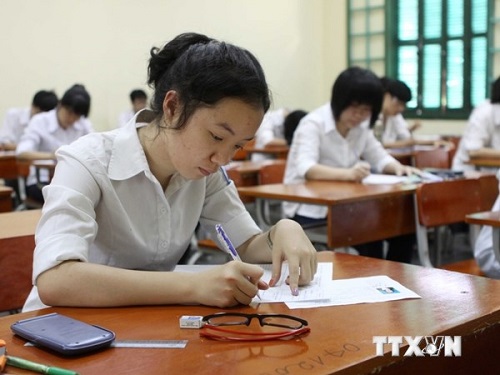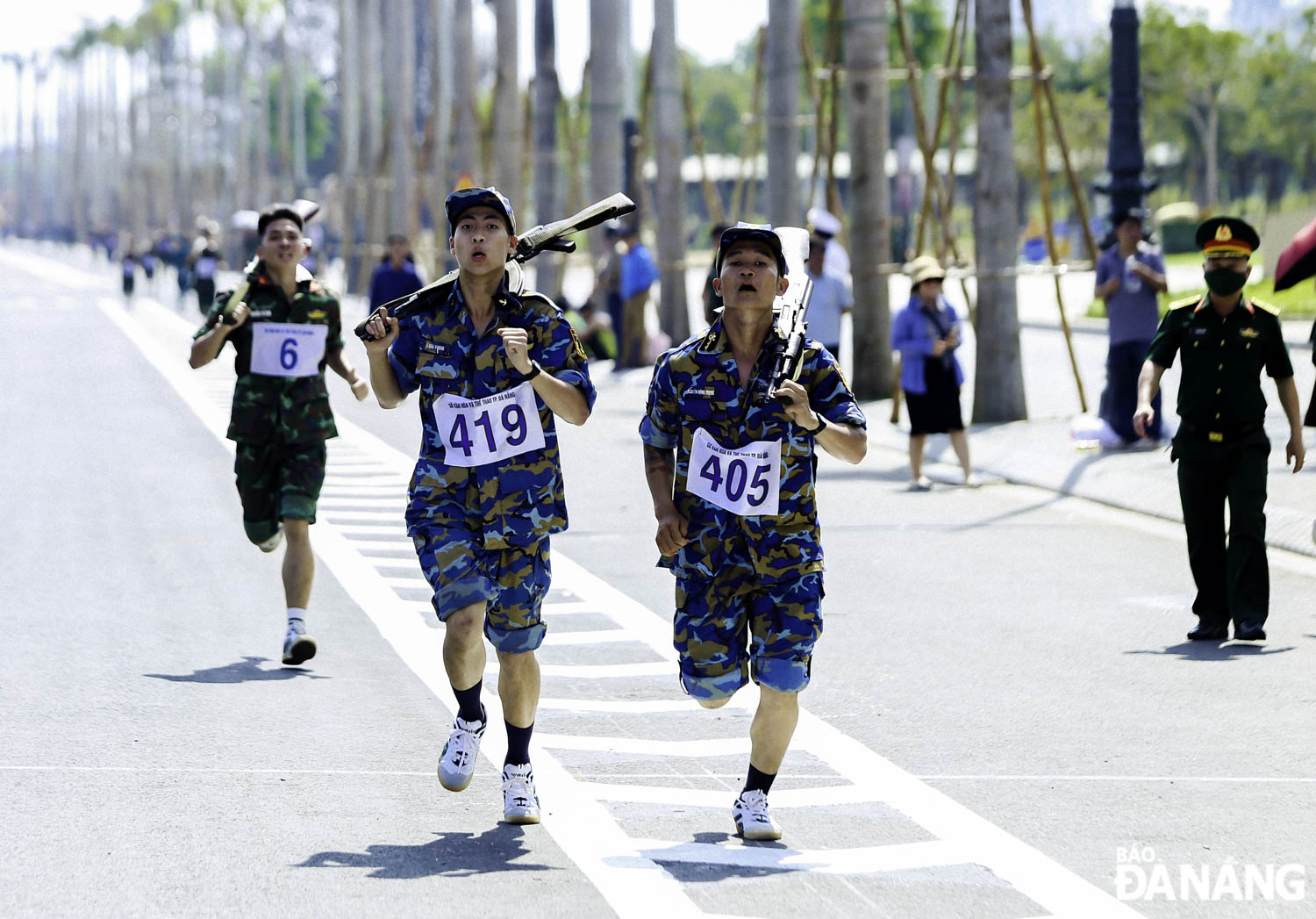Ministry's proposals for national high-school exam stir controversy
None of the three solutions suggested by the Ministry of Education and Training (MOET) relating to the national high school exam organization has achieved a broad consensus among the public. Some educators have pointed out that all three are problematic.
MOET has decided that from 2015, Viet Nam will organize only one national exam for high school students instead of the current two, the high school final and the university entrance exam. This means that students would have to take only one exam to finish high school and enter university.
 |
However, how the national exam will be organized has yet to be determined.
Three solutions have been drawn up by MOET, each of which has strong and weak points.
With the first solution, students will sit for tests in three compulsory subjects (math, literature and foreign language) and one optional subject (physics, chemistry, biology, history or geography).
The second solution has the same compulsory tests but there will be only two optional tests, one combining physics, chemistry and biology and another combining history and geography.
The third includes four compulsory tests: a foreign language test, a test that combines math and computer science questions, a test on physics, chemistry, biology and technology and a fourth that includes literature, history, geography and morality questions.
Dr. Tran Xuan Nhi, former Deputy Minister of Education and Training, commented that the first solution is just like the one high school final currently being applied, with two compulsory and two optional exam subjects.
“Ninety-nine percent of students pass the high school finals. What should we organize an exam for?” he questioned.
“If we choose the first solution, we will follow the old way, which cannot help truly assess students’ ability,” he said, adding that the exam should be organized in a way so that only 70 percent of students can pass the exam. If so, the quality of the students for universities would improve.
He has strongly warned that the first solution, if chosen, would lead to a serious problem in which students would only focus on some subjects they like and ignore other subjects.
“I am sure that students would not study history and some other social science subjects,” he warned.
Nhi agrees with MOET that the second solution proves to be the best of the three, because students will have to study all subjects to be able to solve exam questions.
However, he said the optional test needs to include questions relating to all natural and social science subjects.
“The aim of general education is to provide comprehensive knowledge to students. The students, who plan to follow natural sciences for university education, also have to obtain knowledge in social sciences,” he commented.
The third solution is the one which Minister of MOET Pham Vu Luan said he personally prefers to the other two.
However, according to some analysts, proves to be unfeasible, because it will require an integrated teaching method, which still does not exist in Viet Nam.




